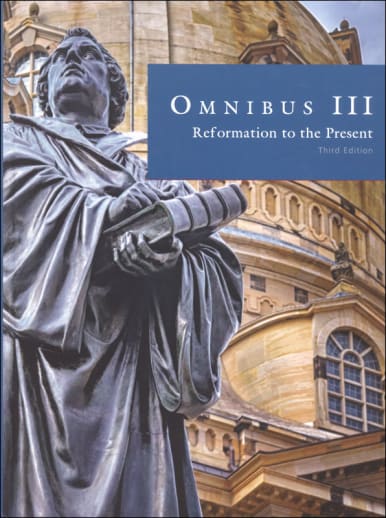Each Omnibus is divided into two semesters with primary (traditional Great Books) and secondary (other) book selections for each. These selections and the course built around them are rigorous; very rigorous. Some parents might be concerned about portions of the content. The editors are clear about several things. First, they assume that evil is to be conquered rather than evaded. Secondly, they assume that godly oversight and protection will accompany the student through this coursework. Thirdly, they see the Christian home as a boot camp where students are taught to handle their weapons - under godly, patient supervision. Lastly, since the Bible includes the same topics as these books there is no subject that this curriculum will raise in the minds of junior or senior high students that would not also be raised as he reads the Bible.
If you're beginning to feel overwhelmed, relax. These texts will instill confidence even as they make the job easier for you. In essence, they're comprised of stand-alone guides for reading, studying and understanding these Great Books and the Great Conversation of ideas they represent. Beginning with an introductory worldview essay, a session is outlined for each day a book is to be studied. The number of weeks in a study varies with the selection. Discussion is a major part of every book study. Some days the discussion is general with an eye on comprehension but more often the focus is textual, cultural, and biblical analysis. There are daily reading assignments and almost daily writing assignments plus a large selection of optional activities.

